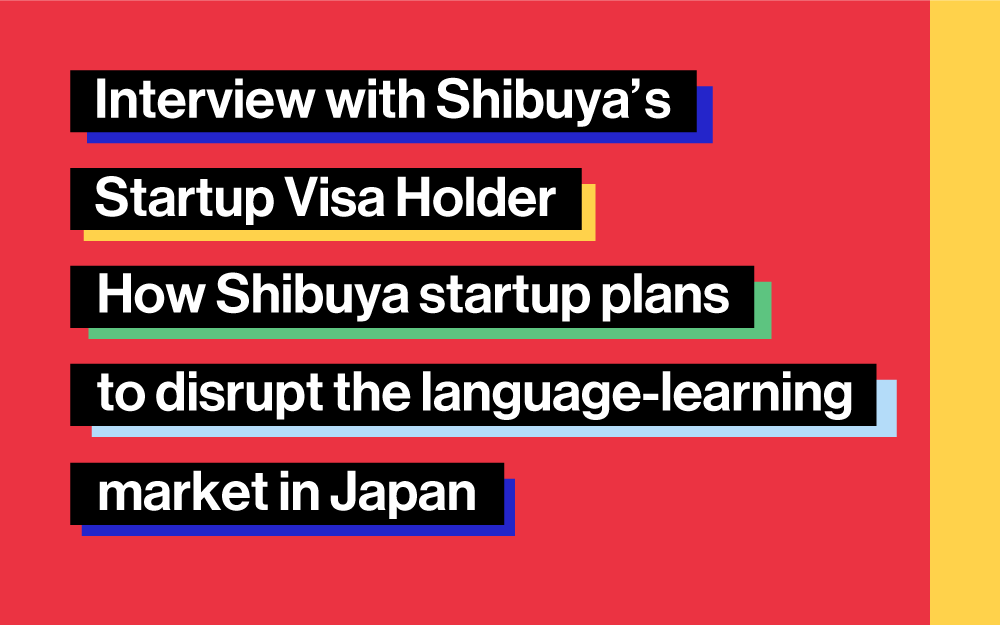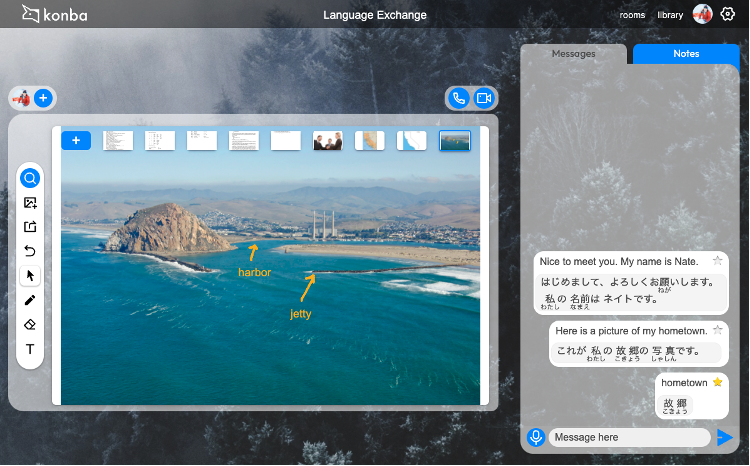Interview with Shibuya’s Startup Visa Holder: How Shibuya startup plans to disrupt the language-learning market in Japan

As many foreign residents can attest, learning Japanese is difficult and time-consuming. Meet Nate Black, founder of Konba and Shibuya Startup visa awardee, who is taking a language exchange to a whole new level.

Hi, Nate! Please tell us about your entrepreneurial journey.
I have a degree in classical vocal performance with an emphasis on opera and art songs but never really wanted to pursue that as a career. While studying, I felt drawn to my other passion, software development, and decided to take it from a hobby to a full-time job.
In 2009, I landed an internship at Salesforce in San Francisco as an entry-level developer. At that time, it was not a well-known tech company but I thought I could gain valuable experience and see what a successful startup would look like. Having a stable source of income allowed me to allocate some time for working on side projects and thus, little by little venture into the startup world.
My first gig was an early stage startup out of someone’s garage in California. A few times a week, my friend would drive me there and we would work on a sports related game centered around American football. After spending a really long time in Salesforce, I didn’t really know how to contribute value outside of the company and this experience helped me rebuild those skills.
At that time, I accepted an offer to become a host of a software engineering podcast. One of my guests was Joel Spolsky, founder of the Stack Exchange software product which powers Stack Overflow. His insights about startups and entrepreneurship pushed me to finally quit Salesforce and kickstart a consulting business for startups.
How did you end up working with startups in Japan?
During my visit to Japan in 2018, I met Yukiko Ito from Zest who invited me to the 500 Startups pitch event in Tokyo. One of the companies was looking for engineers and guess what, I got hired. It turned out to be a quite rocky road, with the company going bankrupt afterwards. I started working for another company and .. they filed for bankruptcy too!
Most experienced entrepreneurs have tried to be part of a failing startup in one way or another and I saw this as a positive learning experience. It taught me what I needed to know to get where I am today. When I started my edtech startup Konba, I focused all my efforts on building a working MVP (minimum viable product) and as of now, have already done tests with a few potential customers.

Could you please tell us more about your startup Konba?
I tried learning Japanese and found it quite hard. One thing that really helped me was doing a language exchange with a Japanese person and I started to brainstorm how to replicate that experience online.
At Konba, we develop tools to help Japanese language learners have successful conversations and a better experience with online learning. Konba’s online real-time classroom has built-in features that replicate sitting next to the teacher or language exchange partner. It includes an interactive whiteboard and a visible chat component enhanced for language learning with a furigana add-on and an automatic translation.
Because of COVID-19 pandemic, many Japanese language schools in Japan are scrambling to set up online teaching systems. We aim for success in this market because we can provide a complete tailor-made solution for them to use.
Why did you decide to apply for a Shibuya Startup visa?
After meeting my co-founder Jan Reinecke, I finally got to the point where I was ready to make the jump and work full-time on Konba. The options were either to continue as a side project on an Engineering visa or get a Business Management visa. Requirements for the latter one are really tight since you need to be operating at a profit after a certain amount of time and have a physical office. Shibuya Startup visa provides you with a lot of flexibility especially in the beginning when you’re just figuring things out.
At first, I had a 30-minute consulting session with two members of the program. They were very supportive but at the same time gave me a reality check about what was needed in order to successfully get into the program. The first iterations of my business plan and my pitch were flat out bad but greatly improved after a helpful feedback.
It took me only two weeks from application to getting accepted but leading up to that was many months of work and preparation. Most of our effort and time went into the product and the business plan, the most challenging part.
What is your plan for the next year?
We’re close to getting our first deals in January and that will also require us to incorporate the company. It is important to focus on getting more feedback from users and build in some marketing tools to understand users’ behavior.
Throughout the way, we’ve had a lot of supporters helping on a volunteer or contract basis. I’m on the constant lookout for a designer and somebody that can help with the sales and marketing side since it’s really not my strength.
Every founder who did fundraising told me it’s a full-time job. As of now, we are still running on my 5-year savings and hopefully can go for two years without fundraising. On the other hand, I’ve been involved in more than one startup that’s run out of money so this is definitely something I want to track.
Thank you so much for your time, Nate! Any last words for foreign founders who are thinking about getting a startup visa for Japan?
Just pull the plug and do it. There’s no downside to it and it is basically a free option. I was in a position where I could have directly gone for a Business Manager visa but the Shibuya Startup visa provides much more flexibility.
One of the biggest benefits of the Shibuya program is also access to mentors, investors and potential partners. I’m looking forward to taking advantage of the social aspect and networking opportunities. Thanks to everyone who helped me along the way!
Interested in trying out the app?
Check it here: https://konba.app/languageExchange

